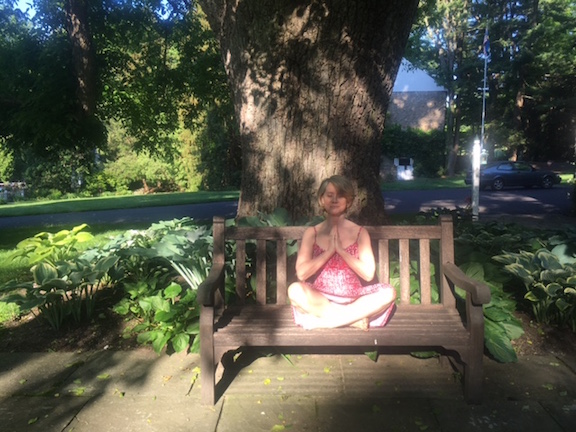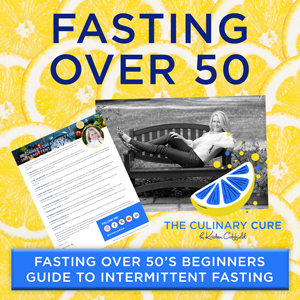How Mindfulness Meditation & a Little Help From My Friends Saved My Life!

I've experienced tough times during the past couple of years. Of course, I'm no exception. We all have tough times. That's life, isn't it? "You can't feel joy unless you've felt pain... blah, blah, blah..." Yes, I know already! How about a little joy, folks? God? Higher Being? After so much pain and stress, I've gotten to the point where I'm physically and mentally exhausted. Symptoms like debilitating headaches and stomach pain have now taken over and are keeping me from living life fully. I had to change, but it's been tough. I've been taking one step forward and two steps back for a while.
We'll talk about my personal "issues" (no one has "problems" any more!") during the past 18 months at some later date. For now, I'll be in the present and try to talk you into the same. You may know that I work with clients helping them turn their lives around, to live healthier, happier, and more energeticly, through gentle counseling in nutrition, exercise, spirituality, stress management, and life organization. So, I feel fortunate to know the process... Duh, Katherine! I'm sharing my "metamorphosis" with you, so perhaps you could gain some insight for yourself.
Attempting to recover, my first step has been allowing myself to have more positive experiences. I say "allowing myself" because I alone had to take the responsibility to make the necessary changes in my life and get out of my negative state. I forced myself to start listening - and responding - to the friends, loved ones, and health care professionals in my life to get back to socializing a little more with good people, participating in good causes, and exercising. This meant "working through the pain," an admonishment I came to detest, but one I knew was true. (I had already been evaluated by doctors).
I started reading a book recommended by the Reverend Timothy A.R. Cole, the rector of Christ Church Georgetown, called The Book of Joy co-authored by The 14th Dalai Lama and Archbishop Desmund Tutu. Two of the most positive, spiritual, and productive men on earth who have suffered unheard of atrocities. If they can overcome their obstacles - exile, refugee life, apartheid, targets of hate and prejudice - can't we?
In The Book of Joy both spiritual leaders emphasize meditation or prayer as the foundation of a happy life. They meditate, pray, have quiet time, for several hours every morning. Can I do that? Will I do that? Should I expect my clients to do that? Well, probably not. But, I'm going to turn my life around using these methods - my own way. In the 1990s, I worked with - and sent my clients to - a psychologist who specialized in biofeedback (Karan Kverno, PhD, no longer in private practice), and learned then how effective - and scientifically proven - deep breathing can be for improving various health conditions, but I got away from the practice.
Second step: I decided my personalized way would be Mindfulness Meditation with a little yoga thrown in. I do a little in the morning, and spurts here and there through the day. And if I can do it, you can do it - that is, in your own way. Like you, I'm a hard working professional (and I'm including stay-at-home Moms and Dads). I don't have a lot of time, but as a health care professional and life coach, I know through many years of experience that there are certain priorities in life that cannot be ignored, or the consequences are dire.
Changing the way you think and calming your mind are the cornerstones of any behavior or life change. "Mindfulness is the ability to be present, more focused, and clear; for concentration to be more sustained, and for attention to be on what’s happening, instead of on thoughts, memories, and associations," said Jack Killen, when he was the Deputy Director of the National Institutes of Health's National Center for Complementary and Alternative Medicine.
"There is neurobiological research that demonstrates that mindfulness engages pathways in the brain ... [they] allow your brain to be focused on what is here and now... [so you're] more able to think through a problem, less likely to be distracted by issues that won't help," said Killen. "Meditation is a way of exercising neurological pathways in the brain which help us become more mindful."
So, how do I or you choose a way to become more mindful ... a way that fits your lifestyle, beliefs, and personality? Here's what I did this weekend toward that goal: I left the city I love to visit a good friend in the beautiful and serene Pennsylvania countryside. My Swedish friend, Anna, is one of the warmest, kindest, most loving people I know. She exudes elegance in a simple, down-to-earth (very Swedish) way. I love visiting her.
On the way to the Pennsylvania countryside, I called a few friends I haven't talked to in a while. That felt good. I was enjoying the drive. My headache was disappearing. When I got there, my happines was overflowing, my headache was gone. Being here, and with a great friend, somehow motivated me to get out of bed early (my headache came back during the night, ugh!). I started with a cup of coffee (strong and smooth Swedish style), then sat in a comfortable chair facing the trees. I started deep belly breathing, centering my mind on the moment, checking each part of my body for signs of stress, and then relaxing it. I put on some favorite music (rock 'n roll was my pleasure at the moment). I spontaneously got up and started dancing. I continued with the deep breathing and started some yoga exercises. My headache finally left me again. The worst of the stomach pain disappeared when I recently stopped taking anti-inflammatory medications, based on my doctor's and pharmacist's recommendations.
Am I cured? No. I have a long road to hoe. My headaches - probably a symptom of stress left over from my issues of the past 18 months - are not gone entirely, but at least I know I have some control over them. I have to work at my deep breathing, stretching, and light exercising continuously. Training your brain to be more mindful "is a bit like going to the gym and working out your muscles. It takes time and practice for the beneficial brain pathways to become established, similar to building muscular strength and flexibility," said Killen.
Along with the deep breathing exercises, and light yoga, I need to make an effort to stay in touch with and socialize with the people I care about. But those are only steps one and two! Exercising my body more regularly is my next big hurdle. I don't know how long it will take to get to my former fit self, or even a better self. But at least I'm off to a good start. And you can be, too! Though, be sure to check with your doctor to rule out any serious medical illnesses.
I'll keep you posted!





